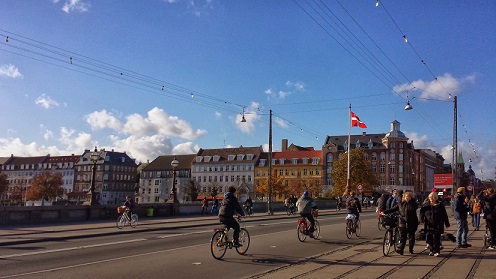Financial Results
Danske's 2019 Net Profit Held Steady

After what has been a painful period both for internal and international economic reasons, the bank was able to report that its net profit for 2019 had been steady from a year before.
This week, Danske
Bank the Copenhagen-based lender, which has been hit by a
major money laundering scandal in the Baltics, has reported a
broadly flat result for its net profit in 2019. The figure was
DKK15.1 billion ($2.22 billion), versus DKK15.2 billion in
2018.
Total income last year was DKK45 billion, compared with DKK44.4
billion in 2018, it said in a statement.
"The year was characterised by difficult financial markets, a
further decline in interest rates, a slight worsening of the
macroeconomic environment and persistently strong competition in
all markets. Customer activity was still at a good level though,
and our partnership agreements continued to help us grow lending
in most Nordic markets. Regulatory and compliance costs continued
to increase, and an expected rise in impairments also had a
negative effect on the result," Danske Bank said.
At the end of December last year the bank had a Common Equity
Tier 1 ratio - a standard global measure of a bank's capital
strength - of 17.3 per cent, up from 17 per cent a year before.
Its cost/income ratio widened to 64.8 per cent from 56.4 per
cent.
Looking ahead, the bank said that it wants to achieve a a return
on shareholders’ equity of 9 to 10 per cent and a cost/income
ratio in the low 50s. Danske said that it expected net profit for
2020 to be in the range of DKK 8 to10 billion, equivalent to a 5
to 6 per cent return on shareholders’ equity, as communicated on
1 November 2019. Net fee income is expected to be slightly lower
than in 2019, due to lower remortgaging activity and subject to
customer activity and market developments. The bank predicts that
costs will be in the range of DKK28-29 billion, driven by
acceleration of investments of up to DKK2 billion and a continued
increase in compliance costs.
Baltic blues
Danske
has replaced its chief executive and made a number of other
changes in the wake of a money laundering episode centred on the
Baltic state of Estonia. The affair snowballed into a broader
European money laundering saga, raising calls for
tougher AML controls across the European Union.
In May last year the lender appointed former ABN AMRO senior
figure Chris Vogelzang as its new chief executive. He took over
from interim CEO Jesper Nielsen who had held the position after
the resignation of Thomas F Borgen in 2018.
Danske Bank, as previously announced, reiterated in its results
statement that it is closing its remaining banking activities in
Estonia in accordance with the resolution announced on 19
February 2019 and the precept issued by the Estonian FSA. Danske
Bank Estonia Branch has entered into solvent liquidation.
On 1 November, Danske Bank’s Russian branch entered into solvent
liquidation, folowing its decision to shut its Russian
activities, as communicated on 19 February 2019. On 23 November,
the sale of Danske Bank’s remaining portfolio of personal
customers in Estonia to AS LHV Pank was finalised.